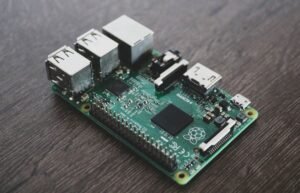Will AI Replace Workers?
Artificial Intelligence (AI) has gained immense popularity in recent years and has been making significant strides in various industries. With machines becoming increasingly capable of performing complex tasks, there arises a concern whether AI will eventually replace human workers. In this article, we explore the impact of AI on employment and analyze whether workers should be worried about being replaced by robots.
Key Takeaways:
- AI technology has the potential to automate certain job roles, leading to concerns about job displacement.
- AI is more likely to augment human work and bring about job transformations rather than completely replacing human workers.
- Workers can adapt to the changing job landscape by acquiring new skills that complement AI technology.
The Role of AI in the Future of Work
AI has already made its way into various industries, revolutionizing processes and augmenting human capabilities. Many fear that AI will ultimately render human workers obsolete. However, it’s important to note that AI technology is designed to enhance human performance, particularly in tasks that involve data analysis and pattern recognition. *AI is a tool to assist workers, not a substitute for them.*
Job Displacement vs. Job Transformation
While AI technology has the potential to automate certain job roles, it is more likely to cause job transformations rather than complete job displacement. Jobs that involve routine and repetitive tasks are more susceptible to automation, while those requiring human creativity, critical thinking, and emotional intelligence are less likely to be replaced by machines. *AI enables human workers to focus on more strategic and impactful tasks.*
Adapting to the Changing Job Landscape
As AI continues to evolve, workers need to adapt and acquire new skills to stay relevant in the job market. Rather than fearing the replacement of jobs, workers can *embrace AI technology as an opportunity* to augment their skillsets. By acquiring skills in areas such as data analysis, machine learning, and problem-solving, workers can enhance their employability and explore new career opportunities.
Tables:
| Jobs at High Risk of Automation | |
|---|---|
| Job Title | Automation Probability |
| Telemarketers | 99% |
| Data Entry Clerks | 98% |
| Jobs at Low Risk of Automation | |
|---|---|
| Job Title | Automation Probability |
| Psychologists | 0.4% |
| Graphic Designers | 1.4% |
| Industries with High AI Adoption | |
|---|---|
| Industry | AI Adoption Rate |
| Healthcare | 56% |
| Financial Services | 47% |
Conclusion:
While the fear of AI replacing workers is understandable, it is important to recognize that AI is more likely to augment human work rather than completely eliminate it. By understanding how AI technology can complement and enhance their skills, workers can actively position themselves for success in a rapidly evolving job market. Adaptability and continuous learning will be key to navigating the changing job landscape in an AI-driven world.

Common Misconceptions
AI will replace all workers
Many people fear that as AI technology continues to advance, it will inevitably replace all human workers. However, this is a common misconception. While AI has the potential to automate certain tasks and replace certain jobs, it is unlikely to replace all workers entirely.
- AI is more likely to augment workers’ capabilities by automating repetitive tasks and enabling more efficient workflows.
- Jobs that require creativity, emotional intelligence, critical thinking, and human interaction are less likely to be fully replaced by AI.
- AI may actually create new job opportunities in areas such as AI development, maintenance, training, and ethical oversight.
AI will take over all industries in the near future
Another misconception is that AI will rapidly take over all industries, rendering human workers obsolete. While AI has been making significant advancements across various sectors, the widespread adoption and integration of AI into every industry are unlikely to happen overnight.
- Different industries have varying levels of readiness and infrastructure to incorporate AI technologies.
- In some cases, human involvement is still crucial due to complex decision-making processes, domain expertise, and ethical considerations.
- AI advancements also require significant financial investment and may face regulatory and legal challenges that slow down their implementation in certain industries.
AI will replace all low-skilled jobs
There is a myth that AI will only replace low-skilled jobs, leaving higher-skilled workers unaffected. While some low-skilled jobs may be automated, AI has the potential to affect jobs across all skill levels.
- AI advancements have the capacity to automate both routine physical tasks and cognitive tasks, impacting a wide range of professions and industries.
- Even high-skilled jobs can have certain components that are automatable, requiring workers to adapt and acquire new skills to work alongside AI systems.
- AI can also enhance higher-skilled workers’ productivity, providing them with advanced tools and insights to perform their jobs more efficiently.
AI will create mass unemployment
The fear that AI will lead to mass unemployment is a common misconception. While AI may impact specific job roles and industries, it also has the potential to create new jobs and transformational changes in the labor market.
- AI technology may drive productivity gains and economic growth, leading to the creation of new jobs that don’t currently exist.
- Workers may need to adapt and acquire new skills to work alongside AI systems, ensuring their relevance in the evolving job market.
- New job opportunities may arise in areas such as AI development, programming, data analysis, and AI system maintenance and evaluation.
AI will control and replace human decision-making
One misconception about AI is that it will completely take over human decision-making, leading to loss of control. However, AI systems are designed to assist and enhance human decision-making, rather than fully replacing it.
- AI can analyze vast amounts of data and provide valuable insights to support informed decision-making processes.
- Human oversight and ethical considerations are necessary to ensure the responsible use of AI systems, preventing biased or harmful outcomes.
- Ultimately, humans will retain authority over critical decisions and be responsible for the outcomes of AI-assisted decision-making processes.

Will AI Replace Workers?
With the rapid advancement of artificial intelligence (AI) technology, concerns about the future of human employment have been escalating. Many worry that AI will replace workers across various industries, potentially leading to significant job losses. In this article, we will explore different aspects of this ongoing debate and provide verifiable data to shed light on the possible impact of AI on the workforce.
The Rise of Automation Technologies
Advancements in automation technologies have already started transforming the labor market. Let’s take a look at some statistics regarding the current state of workforce automation.
Automation Adoption by Industry
Within different industries, automation adoption varies significantly. Below, you’ll find a breakdown of industries with their respective rates of automation:
Types of Jobs at Risk
While the impact of AI on the workforce is complex, certain job categories are more susceptible to automation. Here’s a breakdown of job categories at risk:
Gender Disparities in Potential Job Losses
The adoption of AI and automation technologies may also exacerbate existing gender disparities in the workforce. Here’s an illustration of the potential gender breakdown regarding job losses:
Jobs Most Resistant to Automation
Although AI may pose a significant challenge to workforce stability, certain job categories remain less susceptible to automation. Here’s an overview of jobs that are considered more resistant to automation:
Automation and Economic Growth
The impact of AI on economic growth remains a topic of debate. Here’s a comparison of projected GDP growth rates in the presence and absence of AI-driven automation:
The Emotional Connection Factor
Some argue that certain jobs will always require a human touch due to the emotional connection they provide. Here are a few examples of jobs that may be less likely to be fully automated:
The Geography of Automation
Automation adoption can also vary significantly across different countries and regions. Here’s a geographically-oriented breakdown of automation adoption rates:
The Human-AI Collaboration
While AI has the potential to automate certain tasks, it can also enhance human capabilities and lead to new job opportunities. Here’s an overview of potential roles in a future where humans and AI work collaboratively:
The Need for Adaptation
As the job market adapts to the rise of AI, reskilling and upskilling become crucial for workers to remain employable. Here’s a breakdown of the skills that are expected to be in higher demand in a future AI-dominated workforce:
In conclusion, AI and automation technologies undoubtedly have the potential to disrupt the workforce. However, the impact will vary across industries and job categories. While some jobs may be at risk of full automation, human skills such as emotional connection, creativity, and complex problem-solving remain invaluable. As we navigate this transformative era, preparing for the future of work through education and the cultivation of new skills becomes paramount.
Frequently Asked Questions
Will AI replace workers completely?
While AI has the potential to automate certain tasks currently performed by humans, it is unlikely to completely replace workers. Instead, automation is expected to lead to shifts in job roles and responsibilities, with humans and AI working collaboratively to enhance productivity.
What are the advantages of AI in the workplace?
AI can bring numerous advantages to the workplace, including increased efficiency, improved accuracy, and the ability to handle large amounts of data quickly. It can also free up human workers from mundane or repetitive tasks, allowing them to focus on more complex and creative work.
Are there any disadvantages of AI replacing workers?
While there are benefits to AI replacing workers in certain areas, there are also potential disadvantages to consider. These include job displacement, loss of certain skills or expertise, and the need for workers to adapt and acquire new skills to remain relevant in the changing job market.
Which industries are most likely to be affected by AI replacing workers?
Industries that rely heavily on repetitive or standardized tasks are more likely to be affected by AI replacing workers. This includes manufacturing, customer service, transportation, and data entry. However, AI can also augment human capabilities in a wide range of industries, leading to increased productivity and efficiency.
Will AI only replace low-skilled jobs?
No, AI has the potential to replace jobs across the skill spectrum. While it may initially impact low-skilled jobs that involve routine tasks, advancements in AI technology can also disrupt higher-skilled professions that involve data analysis, research, and decision making. However, AI is more likely to augment human skills rather than replace them entirely.
What roles will humans play if AI replaces workers?
As AI takes over certain tasks, humans can shift their focus to areas that require emotional intelligence, creativity, critical thinking, and complex problem-solving. This means humans can take on more strategic and creative roles that leverage their unique abilities, while AI handles routine and repetitive tasks.
Can AI be used to enhance worker productivity rather than replacing them?
Yes, AI has the potential to enhance worker productivity by automating repetitive tasks, analyzing vast amounts of data, and providing valuable insights to inform decision making. By integrating AI into the workforce, organizations can achieve higher efficiency and effectiveness while still leveraging human skills and expertise.
Will AI lead to job creation or job loss overall?
The impact of AI on job creation and job loss is a complex issue. While certain jobs may be replaced by AI, new jobs that didn’t exist before may also be created. For example, AI development, maintenance, and training will require skilled workers. Additionally, AI can have a multiplier effect on job creation by enabling innovative business models and industries.
How can workers prepare for the rise of AI?
To prepare for the rise of AI, workers should focus on developing skills that are complementary to AI technologies. These skills include creativity, emotional intelligence, critical thinking, adaptability, and lifelong learning. Workers should also stay updated on industry trends and embrace continuous learning to remain competitive in a rapidly evolving job market.
What is the role of education and training in AI adoption?
Education and training play a crucial role in AI adoption. It is important for educational institutions to incorporate AI-related concepts, such as machine learning and data analysis, into their curriculum. Additionally, organizations should provide training opportunities for workers to upskill or reskill in order to effectively work with AI technologies.




